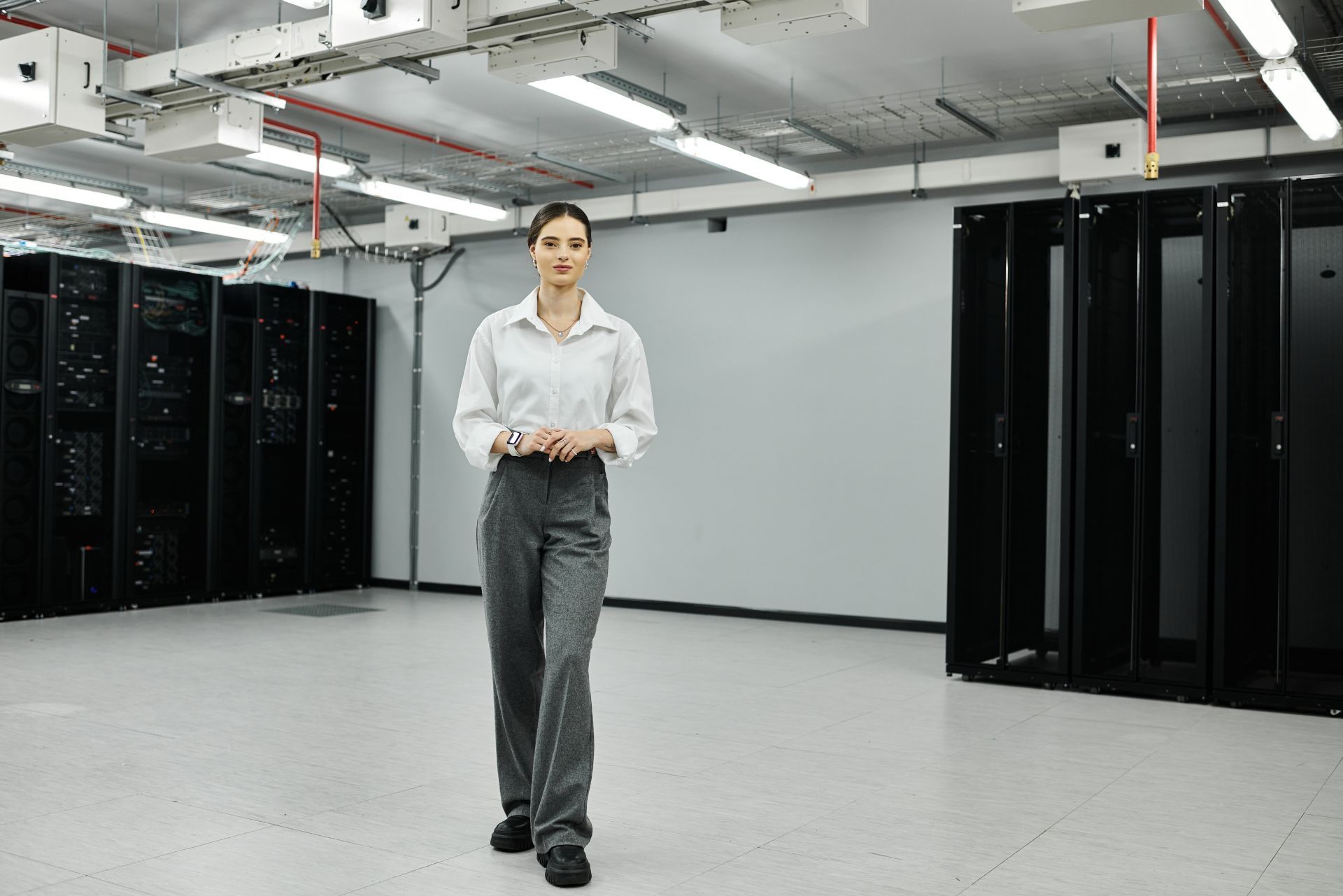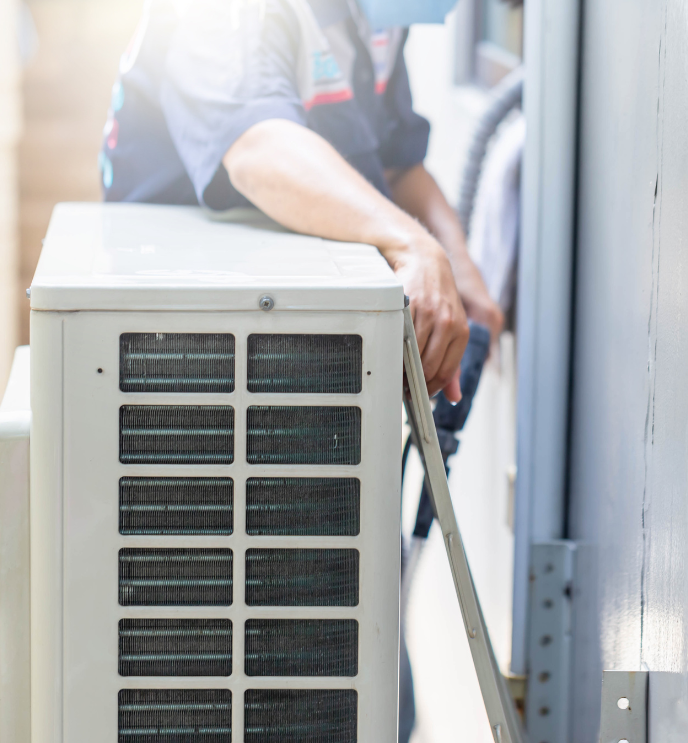Data Center Cooling Specialist Insurance
See How We're Different
or call us: 888-988-2347
Types of Contractors We Serve
Jonathan Behr
Owner of Contractor Insurance Pros by Behr Insurance Services
Index
Contact Us
Phone
Location
Simi Valley, CA 93065
The Woodlands, TX 77382
Katy, TX 77494
In the rapidly evolving world of technology, data centers serve as the backbone of countless businesses and organizations. They house critical infrastructure that supports everything from cloud computing to big data analytics. However, with the increasing demand for data processing comes the need for specialized services, particularly in cooling systems. Data center cooling specialists play a vital role in maintaining optimal operating conditions, but they also face unique risks that necessitate tailored insurance solutions. This article delves into the importance of insurance for data center cooling specialists, the types of coverage available, and key considerations when selecting a policy.
The Importance of Insurance for Data Center Cooling Specialists
Data center cooling specialists are responsible for designing, installing, and maintaining cooling systems that prevent overheating of servers and other critical equipment. Given the high stakes involved, having the right insurance coverage is essential for protecting both the business and its clients.
Understanding the Risks
Every industry comes with its own set of risks, and the data center cooling sector is no exception. Specialists are often exposed to various liabilities, including equipment failure, property damage, and even personal injury. For example, a malfunctioning cooling system can lead to significant downtime, resulting in financial losses for clients. Furthermore, improper installation or maintenance can cause accidents that may injure employees or clients, leading to costly lawsuits.
Additionally, the rapidly changing technology landscape means that cooling specialists must stay updated on the latest systems and methods. This constant evolution can lead to mistakes or oversights that may not only affect performance but also expose the specialist to liability claims. The integration of advanced technologies, such as AI-driven cooling systems and IoT-enabled monitoring, adds another layer of complexity. Specialists must be adept at navigating these innovations while ensuring compliance with industry standards, which can be overwhelming without adequate support and coverage.
Protecting Your Business and Clients
Insurance serves as a safety net, providing financial protection against unforeseen events. For data center cooling specialists, having the right insurance policy can mean the difference between a minor setback and a catastrophic failure. By investing in comprehensive coverage, specialists can ensure they are protected from various risks, allowing them to focus on delivering quality services to their clients.
Moreover, the peace of mind that comes with having robust insurance coverage can enhance a specialist's reputation in the industry. Clients are more likely to trust and engage with businesses that demonstrate a commitment to risk management and liability protection. This trust can lead to long-term partnerships and repeat business, which are crucial in a competitive market. Additionally, many clients now require proof of insurance before entering into contracts, making it not just a protective measure but also a business necessity for securing new projects and maintaining client relationships.

Types of Insurance Coverage for Data Center Cooling Specialists
When it comes to insurance, one size does not fit all. Data center cooling specialists should consider several types of coverage to adequately protect their business. Below are some of the most relevant insurance options.
General Liability Insurance
General liability insurance is a foundational coverage that protects businesses from claims related to bodily injury, property damage, and personal injury. For cooling specialists, this type of insurance is crucial, as it can cover legal fees and settlements arising from accidents that occur on the job site. Whether it’s a slip and fall incident or damage to a client’s property, general liability insurance provides peace of mind. Additionally, it can cover the costs associated with advertising injuries, such as copyright infringement or defamation, which can be particularly relevant for specialists who market their services online or through various media channels.
Professional Liability Insurance
Also known as errors and omissions insurance, professional liability insurance is particularly important for service-oriented businesses like data center cooling specialists. This coverage protects against claims of negligence, misrepresentation, or failure to deliver promised services. For instance, if a cooling system fails due to a design flaw, clients may seek compensation for their losses. Professional liability insurance helps cover legal costs and damages associated with such claims. Furthermore, as technology evolves and cooling solutions become more complex, the potential for miscommunication or misunderstanding increases, making this insurance even more critical for specialists who must stay updated on the latest industry standards and practices.
Property Insurance
Data center cooling specialists often have valuable equipment and tools necessary for their work. Property insurance protects against loss or damage to these assets due to events such as theft, fire, or natural disasters. This coverage ensures that specialists can quickly replace or repair their equipment, minimizing downtime and maintaining service continuity. Moreover, property insurance can also extend to business interruption coverage, which compensates for lost income during periods when operations are halted due to insured events. This aspect is especially vital in the data center industry, where even a short disruption can lead to significant financial losses for both the service provider and their clients.
Beyond the basic insurance types, data center cooling specialists may also want to consider additional coverage options tailored to their specific needs. These options can help mitigate risks that are unique to the industry, ensuring that businesses remain resilient in the face of unforeseen challenges.
Workers' Compensation Insurance
Workers' compensation insurance is essential for any business that employs workers. This coverage provides benefits to employees who suffer work-related injuries or illnesses. In the cooling industry, workers may be exposed to hazardous conditions or heavy machinery, making this coverage crucial. It not only protects employees but also shields the business from potential lawsuits stemming from workplace injuries. Furthermore, investing in a robust workers' compensation policy can foster a culture of safety within the workplace, encouraging employees to adhere to safety protocols and reducing the likelihood of accidents.
Commercial Auto Insurance
For specialists who use vehicles to transport equipment or travel to job sites, commercial auto insurance is necessary. This coverage protects against accidents involving company vehicles, ensuring that both the driver and any third parties are covered in the event of an incident. It also provides protection for the vehicle itself, covering repairs or replacements in case of damage. Additionally, commercial auto insurance can offer coverage for liability claims that may arise from accidents, safeguarding the business's financial stability and reputation. As companies expand their operations, having a comprehensive auto insurance policy becomes even more critical, particularly in urban areas where traffic conditions can be unpredictable.
Cyber Liability Insurance
As technology advances, so do the risks associated with data breaches and cyberattacks. Data center cooling specialists often handle sensitive client data and may be vulnerable to cyber threats. Cyber liability insurance provides coverage for costs related to data breaches, including legal fees, notification costs, and credit monitoring for affected clients. This coverage is becoming increasingly important in an era where data security is paramount. Moreover, many clients now require proof of cyber liability insurance before entering into contracts, making it not just a protective measure but also a competitive advantage. By investing in this type of insurance, businesses can demonstrate their commitment to safeguarding client information, thereby enhancing trust and potentially attracting more clients in a crowded marketplace.
Factors to Consider When Choosing Insurance
Selecting the right insurance policy is not a decision to be taken lightly. Several factors should be considered to ensure that the coverage meets the specific needs of data center cooling specialists.
Assessing Your Risks
Before purchasing insurance, it’s crucial to conduct a thorough risk assessment. Understanding the unique risks associated with the business will help identify the necessary coverage. Consider factors such as the size of the operation, the types of services offered, and the specific environments in which work is performed. A comprehensive risk assessment will guide the selection of appropriate insurance policies. Additionally, it may be beneficial to examine historical data on incidents within the industry, as this can provide valuable insights into potential vulnerabilities and help prioritize which risks require the most attention. Engaging with industry peers or associations can also yield information on common challenges faced, further refining your risk evaluation process.
Evaluating Coverage Limits
Insurance policies come with coverage limits, which dictate the maximum amount the insurer will pay for a claim. It’s essential to evaluate these limits carefully. For data center cooling specialists, it may be wise to opt for higher limits, especially given the potential financial impact of a significant claim. Balancing premium costs with adequate coverage is key to ensuring that the business is well-protected. Furthermore, it’s important to consider the implications of underinsurance, as inadequate coverage can lead to substantial out-of-pocket expenses in the event of a loss. Regularly reviewing and adjusting coverage limits in response to business growth or changes in operations can help maintain appropriate protection over time.
Working with an Insurance Broker
Navigating the world of insurance can be complex, particularly for specialized industries. Working with an experienced insurance broker can be invaluable. Brokers can provide insights into the specific needs of data center cooling specialists, recommend appropriate policies, and help negotiate terms. Their expertise can save time and ensure that the coverage aligns with the business’s unique requirements. Additionally, brokers often have access to a wider range of insurance products and can help tailor a policy that not only meets regulatory requirements but also addresses specific operational challenges. Establishing a strong relationship with a broker can lead to ongoing support, allowing for adjustments in coverage as the business evolves and new risks emerge.
The Cost of Insurance for Data Center Cooling Specialists
The cost of insurance can vary significantly based on several factors, including the size of the business, the types of coverage selected, and the specific risks involved. Understanding these cost factors can help specialists budget effectively for their insurance needs. In the highly specialized field of data center cooling, where the stakes are high due to the potential for significant financial loss from equipment failure or data breaches, having the right insurance coverage is not just a safeguard but a critical component of operational strategy.
Factors Influencing Insurance Premiums
Several factors influence the premiums that data center cooling specialists will pay for insurance. These include the business’s claims history, the number of employees, the types of services offered, and the geographical location. Businesses with a history of claims may face higher premiums, while those with a strong safety record may qualify for discounts. Additionally, the complexity of the cooling systems installed and maintained can also play a role; for instance, companies that work with high-density cooling systems may be assessed differently than those dealing with traditional setups. Insurers often evaluate the potential risks associated with specific technologies and methodologies employed by the specialists, which can lead to variances in premium costs.
Budgeting for Insurance
When budgeting for insurance, it’s essential to consider it as a necessary expense rather than an optional one. Specialists should allocate funds for insurance premiums in their overall business budget. Additionally, it may be beneficial to periodically review and adjust coverage as the business grows and evolves. This proactive approach can help ensure that the business remains adequately protected. It’s also wise to consult with an insurance broker who specializes in the technology sector; they can provide insights into emerging risks and recommend tailored coverage options that align with the specific needs of data center cooling operations. Furthermore, investing in risk management practices, such as regular training for employees on safety protocols and equipment maintenance, can not only reduce the likelihood of claims but may also lead to lower insurance premiums over time.

Conclusion
In the high-stakes world of data centers, cooling specialists play a critical role in maintaining optimal operating conditions. However, with this responsibility comes inherent risks that necessitate comprehensive insurance coverage. From general liability to cyber liability, various insurance options are available to protect specialists from potential liabilities and losses.
By understanding the unique risks associated with their work, evaluating coverage options, and working with knowledgeable brokers, data center cooling specialists can secure the insurance they need to thrive in a competitive landscape. Ultimately, investing in the right insurance is not just about compliance; it’s about safeguarding the future of the business and ensuring peace of mind in an ever-evolving industry.
Areas we serve









